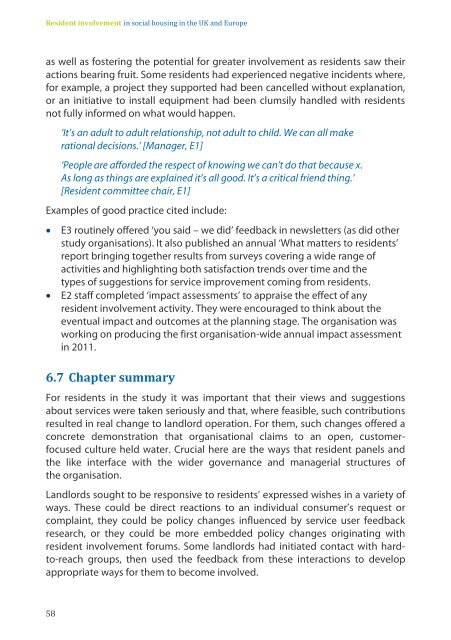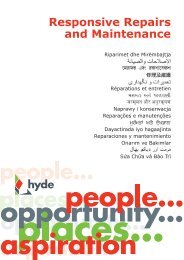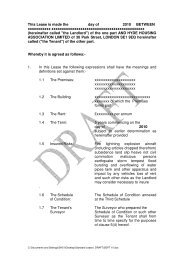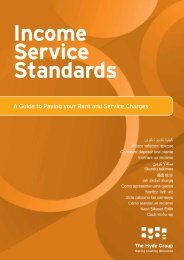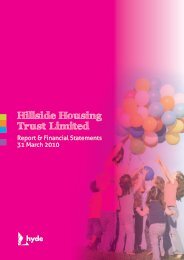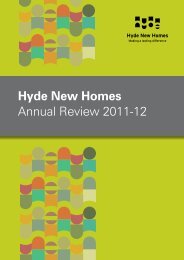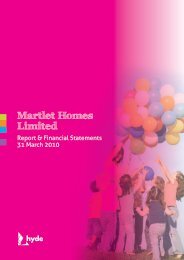Resident involvement - Hyde Housing Association
Resident involvement - Hyde Housing Association
Resident involvement - Hyde Housing Association
Create successful ePaper yourself
Turn your PDF publications into a flip-book with our unique Google optimized e-Paper software.
<strong>Resident</strong> <strong>involvement</strong> in social housing in the UK and Europe<br />
as well as fostering the potential for greater <strong>involvement</strong> as residents saw their<br />
actions bearing fruit. Some residents had experienced negative incidents where,<br />
for example, a project they supported had been cancelled without explanation,<br />
or an initiative to install equipment had been clumsily handled with residents<br />
not fully informed on what would happen.<br />
‘It’s an adult to adult relationship, not adult to child. We can all make<br />
rational decisions.’ [Manager, E1]<br />
‘People are afforded the respect of knowing we can’t do that because x.<br />
As long as things are explained it’s all good. It’s a critical friend thing.’<br />
[<strong>Resident</strong> committee chair, E1]<br />
Examples of good practice cited include:<br />
• E3 routinely offered ‘you said – we did’ feedback in newsletters (as did other<br />
study organisations). It also published an annual ‘What matters to residents’<br />
report bringing together results from surveys covering a wide range of<br />
activities and highlighting both satisfaction trends over time and the<br />
types of suggestions for service improvement coming from residents.<br />
• E2 staff completed ‘impact assessments’ to appraise the effect of any<br />
resident <strong>involvement</strong> activity. They were encouraged to think about the<br />
eventual impact and outcomes at the planning stage. The organisation was<br />
working on producing the first organisation-wide annual impact assessment<br />
in 2011.<br />
6.7 Chapter summary<br />
For residents in the study it was important that their views and suggestions<br />
about services were taken seriously and that, where feasible, such contributions<br />
resulted in real change to landlord operation. For them, such changes offered a<br />
concrete demonstration that organisational claims to an open, customerfocused<br />
culture held water. Crucial here are the ways that resident panels and<br />
the like interface with the wider governance and managerial structures of<br />
the organisation.<br />
Landlords sought to be responsive to residents’ expressed wishes in a variety of<br />
ways. These could be direct reactions to an individual consumer’s request or<br />
complaint, they could be policy changes influenced by service user feedback<br />
research, or they could be more embedded policy changes originating with<br />
resident <strong>involvement</strong> forums. Some landlords had initiated contact with hardto-reach<br />
groups, then used the feedback from these interactions to develop<br />
appropriate ways for them to become involved.<br />
58


